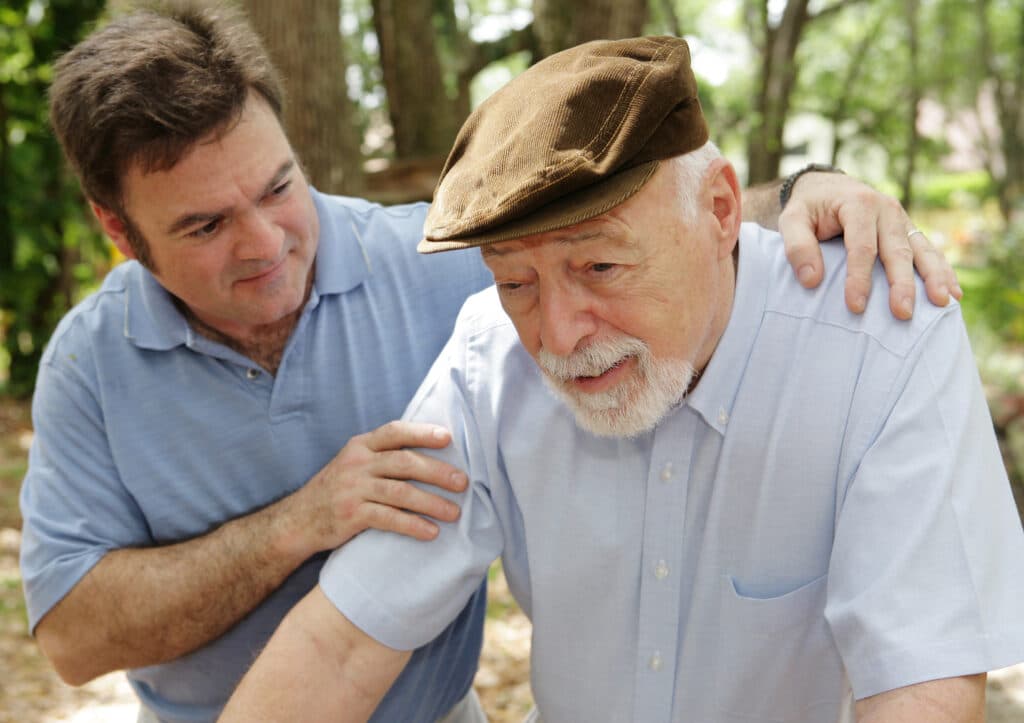By Dreu Adamas
Elderly adults who live alone may be targeted by scams attempting to gain access to their finances. Elder financial exploitation becomes even more common if they are experiencing the early stages of dementia or Alzheimer’s disease. If you are caring for an elderly adult, at some point you may find that your loved one is the victim of financial mistreatment. In fact, financial abuse happens to about one in nine elderly adults. Sadly, only about one in 44 cases is ever brought to authorities. Since nearly 90% of abusers are caregivers or family members, you may find yourself in a tough personal position while doing what is best for your loved one. As a caregiver, it is important to be aware of some of the financial scams that can occur and some ideas to keep your loved one safe.
- Healthcare/Medicare/Health Insurance Fraud– These scams can be perpetrated by healthcare professionals as well as others. It is important not to give a medical provider complete authorization to bill for services without review or understanding. Tell your loved one to keep his or her Medicare number safe and treat it as a social security number. Always have your loved one or yourself review billing statements to be sure they are correct.
- Funeral and Cemetery Scams– If your loved one is interested in making some advanced arrangements, he or she may visit funeral homes or cemeteries and end up making expensive purchases. It is easy for a funeral home to inflate prices or use the emotional vulnerability of the topic to encourage an elderly customer to spend unwisely. It is a good idea to accompany your loved one on trips to funeral homes and to discuss purchases before they are made. Typically, funeral homes are required to have a price list available so the cost of each item is visible. Also, you may want to sit down with your loved one before these trips and make a list or an outline of required items and services to avoid being pressured into extra spending.
- Counterfeit Prescription Drugs– Most commonly, this internet scam occurs when an elderly person goes online to look for “bargains” on drugs. In turn, the drugs received may not be what they were advertised to be and actually may be harmful. Make sure to research any online pharmacy before purchasing drugs through it.
- Telemarketing Scams – These scams will occur mainly via phone and will pressure your loved one to send money or give out financial information like a bank account number or credit card. Remind your loved one not to give out financial information over the phone and not to send money to unfamiliar people or places. As a safeguard, you may want to keep financial information such as credit cards and social security cards in a secure location in case your loved one becomes confused and forgets your advice. It is also a good idea to ask for written information about any charity or business that calls, like the specific location and /or business license number. Review additional tips for avoiding telemarketing fraud from the FBI.
- Fraudulent Anti-Aging Products– This scam will make unfounded promises to seniors about the abilities of anti-aging beauty products. Usually, these beauty products will be quite expensive and the buyer will almost always be encouraged to buy more than one product. Have your loved one take some time before purchasing anything that seems to have too many unrealistic qualities. Ask for the product name and offer to do a bit of research about it before your loved one decides to purchase. Many times, this is how you or your loved one can find out if the product was just a scam.
- Homeowner/Reverse Mortgage Scams– With this scam, your loved one may be told that money is owed or a large portion of his or her mortgage can be paid off. Or, there may be pressure to take out a large reverse mortgage. If you are concerned your loved one may be vulnerable to this type of trickery, encourage him or her to write down important information in any meeting and not to agree to anything until you have gone over information together to be sure it is not a scam. It is also a very good idea to remind your loved one never to give out any important financial information over the phone such as credit card numbers or social security number.
- Internet Fraud– If your loved one has access to a computer and the internet, it is likely that he or she will encounter an internet scam; common internet scams include an email that seems to be from a friend that is requesting money or a supposed business offering to sell something at an inflated rate. Remind your loved one to purchase items through reliable sources. You can also give the advice to give money to friends in person or as a check in the mail to a known address.
- Sweepstakes and Lottery Scams– These scams typically arrive in the mail and encourage recipients to either mail back money to enter or tells the recipient that he or she has already won and just needs to mail in money to cover the tax or other fees in order to redeem. It is important that you educate your loved one that these types of ploys exist before it is too late. If early dementia or Alzheimer’s prohibit understanding, you may want to think about taking more control of the mail your loved one receives by forwarding the mail to a P.O. box and sorting through the junk mail before returning the rest.
- Investment Schemes– In investment schemes, elderly victims will usually invest in an unlicensed or fake business – typically a pyramid scheme. People are hooked by promises of large financial returns after a certain period of time. If these promises seem too good to be true, they probably are.
- The Grandparent Scam– In this scenario, the elderly victim is called and told that a grandchild has gone to jail and needs money to be bailed out. Have your loved one ask to speak to the grandchild if such a call is received and request relevant information such as the caller’s name and address. You also may want to remind your loved one that in the event of a grandchild’s arrest, the grandchild would place his or her own phone call.
While it is unfortunate that there are people who take advantage of seniors in our communities, it is important that caregivers are ready and prepared to help loved ones be careful and avoid scams. The scenarios above are some of the more “typical” scams, but there are many creative crooks out there – use common sense to help guide you and your loved one.
There are several great reasons why Suburban Home Care® should be your choice for quality homecare. All of our Certified Nursing Assistants and Home Health Aides are screened, trained, bonded and insured.
Every family needs to be aware that almost every Homeowner’s insurance policy specifically excludes anyone working within your home. If the person you hire becomes injured while working for you, you will become personally responsible for all of their medical bills. This has left several families very vulnerable when their caregiver injured themselves at their home.
The potential to lose everything you have worked so hard to achieve seems an unnecessary risk. Every one of Suburban Home Care®’s employees are completely covered by insurance so you and your loved ones can relax knowing that if something unforeseen happens to your caregiver, they are completely covered by insurance.
- Home Care Assistance Supports ADLs and IADLs for Seniors - April 24, 2025
- What Can Families Do When Seniors Don’t Want to Talk? - April 7, 2025
- SPRING SPECIAL! - April 4, 2025



